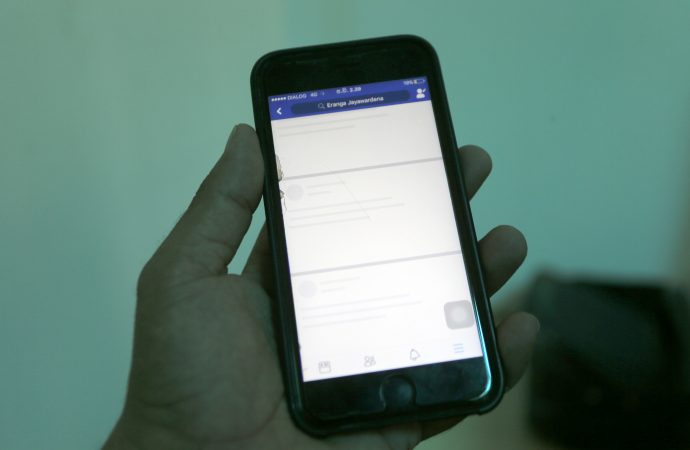It comes as no surprise that social media is increasingly the place for most debate on key modern issues, with many complaining that the nature of these platforms has given rise to an increased hostility and divisiveness in the public sphere.
However, a Tuesday event co-sponsored by two ambassadors to the Holy See and the Vatican’s own communications department attempted to curb this trend, bringing together both diplomats and members of the press corps to speak of ways to foster constructive conversation on platforms, rather than confrontation.
According to one speaker at the June 4 event, titled “Social Media: From Confrontation to Community,” experience has shown that even small, “harmless” topics put forward on Twitter can easily become polarizing and divisive.
“That’s what the internet and social media do to you,” the speaker said. “You are assigned to two camps, to take a position, and to see the other as the enemy.”
(The event was held under “Chatham House rules,” meaning speakers could be quoted, but not identified without permission.)
As great as social media platforms can be, he said there is a tendency “to develop an echo chamber and to pit one another against each other,” and that even in the Catholic world, social media “encourages polarization (and an) echo chamber.”
The speaker was just one among many at the event, organized by the Hungarian and British embassies to the Holy See in collaboration with the Vatican’s communications department. High-profile attendees included ambassadors from four other nations, including Australia, Ireland, Belgium and U.S. Ambassador to the Holy See Callista Gingrich, wife of former House Speaker Newt Gingrich.
Paolo Ruffini, prefect for the Vatican communications department, was also present alongside Vatican Media’s editorial director, Andrea Tornielli, as well as representatives from several other Vatican departments and members of the Vatican press corps.
In comments to Crux, Eduard Habsburg, Hungarian ambassador to the Holy See, said they wanted to hold the event because both he and British Ambassador to the Holy See Sally Axworthy, who are both active on social media, wanted to do something “to counter this aggression we encounter every day.”
What social media currently offers the world, he said, “are incredible occasions for encounter, and there are incredible occasions for slaughter…Somewhere between those two truths you have to find your path.”
From his experience working in and around the Holy See, Habsburg said most people want to spread a positive message on social media, so “That’s what we’re trying to do here, but it’s important to look into each other’s eyes from time to time to get to know each other, to discover the little islands of hope that are on Twitter and social media, so that’s what we’re doing today.”
Similarly, Axworthy told Crux that the “extreme opinions” vocalized on social media reflect an overall problem for media in general.
“It’s an issue that we all face today, particularly people in public life, and I think we can make a contribution to the debate here at the Holy See,” she said, calling the Holy See a place “where we discuss current issues but with an ethical angle.”
The purpose of holding the event, she said, was to evaluate the state of social media and “figure out how we can all make it a little bit better.”
During the morning panel session, speakers described the dangers of “fake news,” misinformation and a lack of context, making even so-called “true news” seem less credible.
One speaker and media expert who vocalized a personal loathing for social media, called the platforms “toxic,” saying they have bred not only an increased societal polarization, but a “tribalization,” in which different camps, including within the Catholic Church, increasingly dig in their heels, seeing those with differing views as opponents to fight, rather than people whose ideas deserve respect.
Social media demands “instant opinion,” where reactions to news and current events are expected to be immediate, skipping any form of thoughtful reflection on subjects.
The antidote, the speaker said, is friendship and the creation of spaces where genuine relationships can be formed.
Another speaker said she is “afraid of the Catholic echo chamber” on social media, but recognizes its importance in current discussion and urged colleagues to help make platforms better.
One speaker suggested organizing “tweet-ups,” in which Twitter contacts meet up for lunch or a coffee to get to know one another personally and exchange views in a respectful way.
In her comments to Crux, Axworthy said her experience on social media as a Holy See diplomat has been a bit “atypical,” since the embassy uses social media primarily to promote events and initiatives they are involved with.
“I find it a very positive, supportive place,” she said, noting that she has been able to engage the online community in key topics for her embassy such as modern slavery, preventing sexual violence in conflict areas and climate change.
Social media is “a forum to make connections,” she said, “so we’ve made connections with some of the people who are interested in our work on social media. We’ve met some of them face-to-face, so for me it’s a very positive thing, but I know my experience may not be typical.”
In terms of tips for how to keep the discussion positive, Axworthy suggested being honest and highlighting positive aspects about what others do, choosing “to recognize their work rather than focusing on the downsides.”
“I thank people, I feel that our Twitter community likes that. I don’t think everybody wants negative news all the time, I think they’re quite happy to see that there are parts of our community who are really trying to work to tackle the issues that we all face,” she said.

